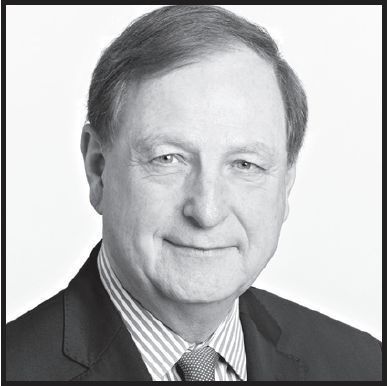THE FIRST FORMAL structures of the rule of common law originated in 12th-century England, when King Henry II wanted to exert control over his realm. One innovation was the appointment of the first circuit judges, who travelled to all regions of the realm rendering uniform decisions based on the principle of stare decisis in the king’s name. These men and their successors became the human embodiment of the English rule of common law.
The secret to the endurance of the rule of common law was its capacity to adapt to the ever-changing personal, scientific, bureaucratic, military, governmental, religious and business environments. Changes, one thousand years in the making, to the rule of law include case law, unique court advancements (in common law and later equity), procedure, statutes, treaties and modern tribunals that govern specialty aspects of enterprise and personal behaviour.
We are not the first age called upon to adapt. Every age has been tested by changes in population, religion and philosophy, science, art, discovery, agriculture, disease, war, machinery or technology. Yet a new age of accelerations is upon humanity like never before. Can the centre hold?
Three forces at work in the world — technology, climate change and globalization — are so strong and operate at speeds never before experienced that the rule of common law must take due warning that its sovereignty is at risk. Thomas Friedman, in his brilliant book entitled Thank You for Being Late: An Optimist’s Guide To Thriving In the Age of Accelerations, contends that 2007 was a pivotal year, with the introduction of the iPhone, the use of algorithms to enhance cellphone communication capacity, the maturity of fibre communication systems, and cloud computing all helping to realize “Moore’s law,” which predicts that the capacity of microchips will double every two years.
Chip technology has indeed kept pace with Moore’s law and doubled every two years over the past 60 years. Its partner, artificial intelligence, is already requiring humankind to adjust.
Climate change has placed enormous pressures on biodiversity in the air, the oceans and on our lands, and forced humanity to contemplate rising oceans, disrupted weather patterns, starvation and mass movement of populations.
Globalization is one commercial outcome of technological change. In 1800, communication moved no faster than one horsepower; today, trade is global and almost instantaneous, and money moves around the face of the earth at electronic speed to change the fate of enterprise and governments.
In my practice of law over the past 45 years I have seen cases take as long as 10 years to be decided. Contrast that with these prospects: within five years we may be doing our banking at Starbucks, buying our cars through Amazon, and receiving health care through nanotechnologies delivered over the internet. In the face of such changes, how can the common law cope? The answer will lie in a combination of the wisdom of the ages, judgment rendered in the security of experience, with deliberate fairness, delivered with the speed and convenience of algorithmically assisted justice.
In the end, processes will be developed to enhance speed and security of the decision‑making process. The delivery system will require the same rate of accelerated change that society is experiencing. With rapid change upon us, there is no time for nostalgia or vested interests.
Order will continue to be maintained through enlightened and informed decision-making on justice and fairness in every aspect of human endeavour and relations, delivered with a speed that we can barely imagine — but embrace it we must.
John Campion is a partner in Gardiner Roberts LLP in Toronto. He has served as a Bencher of the Law Society of Upper Canada, president of the Federation of Law Societies of Canada, president of the Empire Club of Canada, chairman of the audit committee of the CBC, and counsel to two prime ministers.




